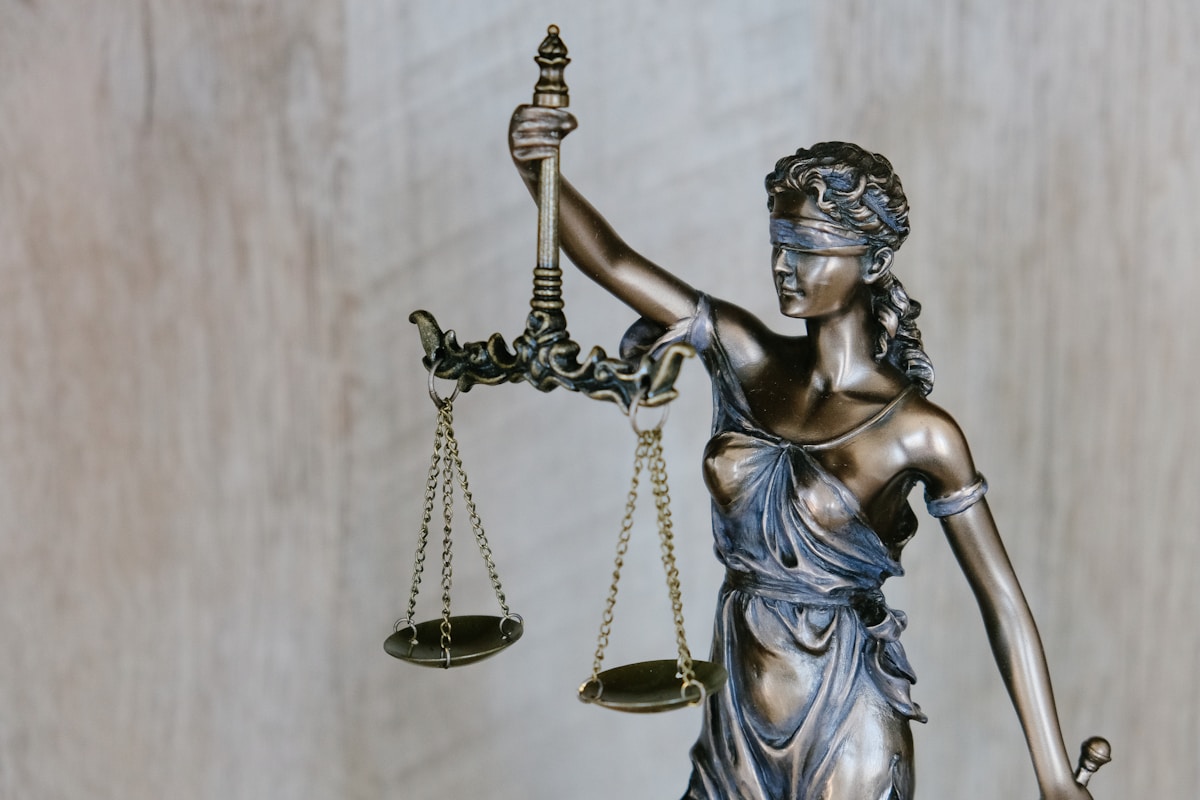The legal distinctions between libel and slander, and how defamation law protects individual reputations.

Your reputation is one of your most valuable assets, both personally and professionally. When that reputation is damaged by false statements, defamation law provides potential remedies. Understanding the nuances of defamation—including the distinction between libel and slander, defenses available to defendants, and the heightened standards for public figures—is essential for anyone concerned about protecting their reputation or avoiding liability for their own communications. This comprehensive guide explores defamation law, its applications, and the evolving challenges in the digital age.
What Is Defamation?
Defamation is a false statement presented as fact that causes injury or damage to a person's or entity's reputation. It is a civil wrong (tort) for which the injured party can bring a lawsuit to recover damages.
For a statement to constitute defamation, it must generally meet these key elements:
- A false statement purporting to be fact (not opinion)
- Publication or communication of that statement to a third party
- Fault, amounting at least to negligence on the part of the publisher
- Harm or damages to the reputation of the person who is the subject of the statement
Libel vs. Slander: Understanding the Distinction
Defamation is divided into two main categories based on how the defamatory statement is communicated:
Libel: Written Defamation
Libel refers to defamation that is written or published, including:
- Newspaper and magazine articles
- Books
- Online content (websites, blogs, social media posts)
- Letters
- Printed photographs with defamatory captions or implications
- Cartoons or illustrations that convey defamatory meanings
Libel is generally considered more serious than slander because written words create a permanent record and can reach a broader audience over time.
Slander: Spoken Defamation
Slander refers to defamation that is spoken or transitory, including:
- Spoken conversations
- In-person statements
- Phone calls
- Television or radio broadcasts (when unscripted)
- Speeches or public addresses
Historically, slander has been treated as less severe than libel due to its impermanent nature, though this distinction has blurred in the digital age.
Modern Challenges in Classification
New media forms have complicated the traditional libel/slander distinction:
- Podcasts may contain elements of both written scripts (libel) and spontaneous speech (slander)
- Livestreams combine spoken words with a potentially permanent digital record
- Voice messages can be saved, forwarded, and preserved like written communications
- Comments on social media platforms may appear conversational but create a written record
Courts have generally treated most digital communications as libel rather than slander, given their potential permanence and broad reach.
Public Figures vs. Private Individuals
One of the most significant distinctions in defamation law is between public and private figures, as established by the landmark U.S. Supreme Court case New York Times Co. v. Sullivan (1964) and subsequent rulings.
Standards for Public Figures
Public figures must meet a higher standard to prove defamation by demonstrating "actual malice," meaning the defendant either:
- Knew the statement was false when made, or
- Acted with "reckless disregard" for the truth or falsity of the statement
This heightened standard applies to:
- All-purpose public figures: Individuals with pervasive fame or notoriety (celebrities, well-known politicians)
- Limited-purpose public figures: People who have voluntarily thrust themselves into a specific public controversy to influence its resolution
- Public officials: Government employees or elected officials who hold positions of substantial responsibility
Standards for Private Individuals
Private individuals generally need only prove that the defendant acted negligently—a lower standard than actual malice—meaning the defendant:
- Failed to exercise reasonable care in verifying the accuracy of the statement before publishing it
- Should have known the statement was false or potentially harmful
The rationale for this distinction is that private individuals:
- Have not voluntarily exposed themselves to increased risk of injury from defamatory statements
- Generally lack the access to media channels to counteract false statements
- Have not assumed the risk of public scrutiny inherent in public positions
Common Defenses to Defamation Claims
Several defenses may be available to someone accused of defamation:
Truth
Truth is an absolute defense to defamation in the United States. No matter how harmful, offensive, or damaging a statement might be, if it can be proven substantially true, it cannot be defamatory.
The defendant need not prove the literal truth of every detail, but rather the "substantial truth" or "gist" of the statement. Minor inaccuracies will not undermine this defense if the overall impression conveyed is accurate.
Privilege
Certain communications are protected by "privilege," which can be either absolute or qualified:
- Absolute privilege provides complete immunity from defamation liability in specific contexts:
- Statements made by legislators during legislative proceedings
- Testimony given by witnesses during judicial proceedings
- Statements made between spouses (marital privilege)
- Executive communications between high-level government officials
- Qualified privilege provides limited protection in situations where public policy encourages open communication:
- Fair and accurate reports of official proceedings or public meetings
- Statements made to protect the legitimate interests of the speaker or recipient
- Employment references provided in good faith
- Communications between people with a common interest in the subject matter
Qualified privilege can be lost if the plaintiff proves the defendant abused the privilege by acting with malice or excessive publication.
Opinion
Statements of pure opinion that cannot be proven true or false generally cannot be defamatory. For example:
- "I think she's a terrible doctor" (subjective opinion)
- "That was the worst movie I've ever seen" (subjective evaluation)
- "In my view, his management style is ineffective" (personal perspective)
However, opinions that imply undisclosed defamatory facts ("mixed opinions") may still be actionable. For example, saying "I think he's embezzling money" suggests you have factual knowledge of criminal activity.
Fair Comment on Matters of Public Interest
Commentary on matters of public interest—particularly regarding creative works, public performances, or other matters offered for public consumption—receives substantial protection. This includes:
- Critical reviews of books, movies, restaurants, or other business services
- Commentary on public policy issues
- Discussions of the conduct of public officials or public figures
This defense encourages open discourse and criticism on matters of public importance.
Section 230 Immunity (for Internet Platforms)
Under Section 230 of the Communications Decency Act, internet platforms and website hosts generally cannot be held liable for defamatory content posted by third-party users. This immunity applies to:
- Social media platforms
- Blog hosting services
- Online forums and message boards
- Review websites
This protection has dramatically shaped the development of online communications by allowing platforms to moderate content without assuming publisher liability.
Proving Damages in Defamation Cases
The damages a plaintiff must prove depend on the nature of the defamation:
Per Se Defamation
Certain categories of defamatory statements are considered so inherently harmful that damages are presumed without specific proof. These include false statements that:
- Accuse someone of committing a crime
- Claim someone has a loathsome disease (historically referring to sexually transmitted infections)
- Impute serious professional incompetence or misconduct
- Suggest sexual impropriety (particularly traditionally damaging to women)
For these "per se" defamatory statements, the plaintiff need not prove actual economic or reputational harm to recover damages.
Per Quod Defamation
For statements that are not defamatory per se, the plaintiff must prove special damages—actual, quantifiable financial losses resulting from the defamation. These might include:
- Lost business or clients
- Lost job opportunities
- Reduced earnings
- Specific out-of-pocket expenses incurred to mitigate reputational damage
Proving such damages often requires substantial documentation and evidence linking the financial loss directly to the defamatory statement.
Defamation in the Digital Age
The internet has transformed the landscape of defamation law, creating new challenges and considerations:
Social Media Defamation
Social media platforms have dramatically increased the potential reach and permanence of defamatory statements. Unique considerations include:
- Rapid amplification: Defamatory posts can be shared thousands of times within hours
- Screenshot preservation: Even deleted content can be preserved and continue circulating
- Context collapse: Statements taken out of context can appear more defamatory than intended
- Mixed opinion/fact statements: Social media's conversational nature blurs the line between protected opinion and factual assertions
Jurisdictional Challenges
Online defamation creates complex jurisdictional issues:
- Content published in one location may be accessed worldwide
- Multiple potential jurisdictions may have different defamation standards
- "Libel tourism" allows plaintiffs to bring suits in countries with more plaintiff-friendly laws
- Enforcing judgments across international boundaries presents practical challenges
Anonymous Defamation
Online anonymity presents unique challenges for defamation plaintiffs:
- Identifying anonymous defamers often requires "John Doe" lawsuits
- Subpoenas to internet service providers may be needed to unmask anonymous posters
- Courts balance anonymity as a First Amendment right against legitimate claims
- Some jurisdictions require plaintiffs to demonstrate a prima facie case before allowing identification of anonymous defendants
The "Right to Be Forgotten"
Some jurisdictions, particularly in Europe under the GDPR, recognize a limited "right to be forgotten" that allows individuals to request removal of certain online information. This right:
- May provide an alternative remedy to traditional defamation lawsuits
- Applies primarily to search engines rather than original publishers
- Balances privacy interests against public information access
- Has limited application in the United States, where free speech protections are broader
Practical Strategies for Reputation Protection
Beyond legal remedies, practical approaches to managing reputational issues include:
Preventive Measures
- Regular monitoring: Set up alerts for mentions of your name or business online
- Proactive communications: Establish a positive online presence to counterbalance potential negative content
- Social media policies: For businesses, clear guidelines can help prevent staff-originated defamation issues
- Relationship management: Address customer or client concerns promptly to prevent escalation
Response Options for Potential Defamation
- Direct contact: Request removal or correction from the publisher
- Platform reporting: Report content that violates platform terms of service
- Right of reply: Post a factual response without escalating the situation
- Cease and desist letter: A formal warning that may resolve the issue without litigation
- Online reputation management: Professional services to enhance positive content visibility
- Litigation: As a last resort when other approaches have failed and damages are significant
When evaluating potential defamation situations, consider both legal remedies and practical reputation management strategies to determine the most effective approach. While defamation law provides important protections for reputation, the complexity and cost of litigation mean that non-legal solutions are often more efficient and effective for addressing many reputational issues.






